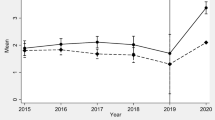Abstract
Readers of Chapter 1 will recall that these words come from Ezekiel Emanuel’s essay opposing the “Death with Dignity” initiative rejected by Massachusetts voters in November 2012. His argument is not without flaws. First, however accustomed his hypothetical beneficiaries of legalization may have been to controlling their lives, they no longer do; they are dying. Second, his estimate of the percentage of people who will benefit amounts to about 600,000 Americans; even if this estimate is accurate now, the number will increase as the population ages. Third, he assumes that the poor prefer prolonging life to expediting death. No reliable data linking choice in dying to education and income exist.2
Whom does legalizing assisted suicide really benefit? Well-off, well-educated people, typically suffering from cancer, who are used to controlling everything in their lives—the top 0.2 percent. And who are the people most likely to be abused if assisted suicide is legalized? The poor, poorly educated, dying patients who pose a burden to their relatives.1
Access this chapter
Tax calculation will be finalised at checkout
Purchases are for personal use only
Preview
Unable to display preview. Download preview PDF.
Similar content being viewed by others
Notes
Ezekiel J. Emanuel, “Four Myths about Doctor-Assisted Suicide,” New York Times, October 27, 2012, http://opinionator.blogs.nytimes.com/2012/10/27/four-myths-about-doctor-assisted-suicide/?_r=0, accessed November 29, 2012.
For data indicating that the poor are not disproportionately represented among those who seek assisted suicide, see Margaret Battin, “Legal Physician-assisted Dying in Oregon and the Netherlands: Evidence Concerning the Impact on Patients in ‘Vulnerable’ Groups,” Journal of Medical Ethics, 33, no. 10 (October 2007): 591–97. doi:10.1136/jme.2007.022335; and Chapter 2.
Serena Mayeri, Reasoning from Race: Feminism, Law, and the Civil Rights Revolution (Cambridge, MA: Harvard University Press, 2011), chap. 5 and 6.
Veronique Mottier, “Reproductive Rights,” in The Oxford Handbook of Gender and Politics, ed. Georgina Waylen et al. (New York: Oxford University Press, 2013), forthcoming.
Barbara Ehrenreich, “Maid to Order,” in Global Woman: Nannies, Maids, and Sex Workers in the New Economy, ed. Ehrenreich and Arlie Hochschild (New York: Henry Holt, 2002), 85–114;
Barbara Ehrenreich, Nickel and Dimed: On (Not) Getting By in America (New York: Henry Holt, 2002), 51–119. For an antifeminist critique, see
Caitlin Flanagan, “How Serfdom Saved the Women’s Movement,” The Atlantic, March 2004, 109–28.
Catharine MacKinnon, Women’s Lives, Men’s Laws (Cambridge: Belknap Press of Harvard University Press, 2005), 62.
Douglas Kriner and Francis Shen, The Casualty Gap: The Causes and Consequences of American Wartime Inequalities (New York: Oxford University Press, 2010).
Mari Matsuda, “Beside My Sister, Facing the Enemy: Legal Theory out of Coalition,” in Feminist Theory Reader: Local and Global Perspectives, 3rd ed., ed. Carole R. McCann and Seung-kyung Kim (New York: Routledge, 2013), 336.
Katha Pollitt, “Checkbook Maternity: When Is a Mother Not a Mother?” in Reasonable Creatures: Essays on Women and Feminism (New York: Alfred A. Knopf, 1994), 100–110.
See Kimberle Crenshaw, “Demarginalizing the Intersection between Race and Sex: A Black Feminist Critique of Antidiscrimination Doctrine, Feminist Theory, and Antiracist Politics,” University of Chicago Legal Forum (1989): 139–68.
Katha Pollitt, “The Strange Case of Baby M,” The Nation, January 1, 1998, http://www.thenation.com/doc/19870523/19870523 pollitt, accessed November 11, 2012;
Phyllis Chesler, Sacred Bond: The Legacy of Baby M (New York: Times Books, 1986);
Ellen Goodman, “Baby M—M for Money,” Washington Post, February 17, 1987, A17, and “In the Swirl of Surrogacy,” Washington Post, February 6, 1988, A23;
Mary Beth Whitehead with Loretta Schwartz-Nobel, A Mother’s Story (New York: St. Martin’s Press, 1989).
Judith A. Baer, Women in American Law: The Struggle toward Equality from the New Deal to the Present, 3rd ed. (New York: Holmes and Meier, 2002), 191.
Garret Keizer, “Turning away from Jesus: Gay Rights and the War for the Episcopal Church,” Harper’s, June 2008, 43.
The term Third World has two original meanings: first, economically underdeveloped countries, and second, countries outside both the industrialized capitalist world and the communist bloc. See Albert Sauvy, “Three Worlds, a Planet,” The Observer, August 14, 1952, 144. Some commentators reject the terms Third World and underdeveloped as pejorative. I reject a common substitute, developing countries, because it implies that industrialization is inevitable. I use Third World because its second meaning, though obsolete, is value neutral and globally understood.
One exception is Bhikhu Parekh, “A Varied Moral World,” in Is Multiculturalism Bad for Women?, ed. Susan Moller Okin (Princeton: Princeton University Press, 1999), 69–75. But Parekh defends the practice only for adults.
Judith Baer, “Five Moments of Global Feminism,” Thomas Jefferson Law Review 28 (2006): 111–22. Another scholar in the audience made a different argument. She suggested that global collaboration among opponents of FGC would be counterproductive: those whom African activists needed to influence would refuse to work with anyone who associated with Westerners. If this is true, it is an excellent reason for Westerners to butt out. It is possible that the most helpful thing we can do is contribute money, perhaps anonymously.
Alexander Cockburn, “Nick Kristof’s Brothel Problem,” The Nation, February 13, 2006, 8.
Judith A. Baer, Our Lives before the Law: Constructing a Feminist Jurisprudence (Princeton, NJ: Princeton University Press, 1999).
Saul K. Padover, ed. The Complete Madison: His Basic Writings (New York: Harper and Brothers, 1953), 296–97.
E. E. Schattschneider, The Semi-Sovereign People: A Realistic View of Democracy in America (New York: Holt, Rinehart and Winston, 1960), 35.
Copyright information
© 2013 Judith A. Baer
About this chapter
Cite this chapter
Baer, J.A. (2013). Winners and Losers. In: Ironic Freedom. Palgrave Macmillan, New York. https://doi.org/10.1057/9781137031006_6
Download citation
DOI: https://doi.org/10.1057/9781137031006_6
Publisher Name: Palgrave Macmillan, New York
Print ISBN: 978-1-349-44066-5
Online ISBN: 978-1-137-03100-6
eBook Packages: Palgrave Social Sciences CollectionSocial Sciences (R0)




